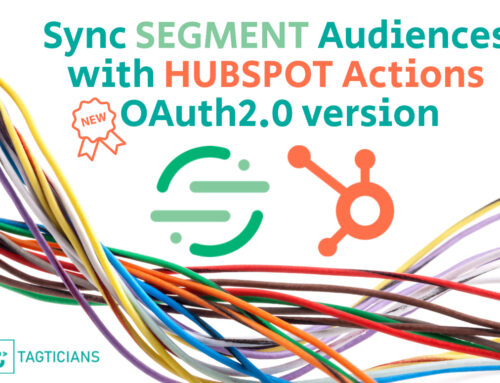In the past 10 years that tag management has been active in the digital marketing realm it has often been portrayed that a tag management consultant needs to be technically savvy. Yes, having knowledge of front-end development certainly does help, but it is often the influence of tag management on analytics and marketing that is overlooked.
To help paint a better picture on what traits a tag management consultant needs these days, we have put together a top 5, just for you. Feel free to discuss or add your opinions below this article.
1. A Tag Management Consultant knows how tag management systems work
The first trait is of course to know how tag management systems work. There are a handful of popular tag management systems on the market today with Google Tag Manager being the only freemium solution in the pack. It is for this reason that Google has much of the tag management market under its control, which directly leads to the vasts amount of knowledge being available online.
Nevertheless, Google Tag Manager is a great tag management system to earn your spurs. With a huge a online community and technical experts like Simo Ahava and Julius Fedorovicius publishing their knowledge it is an easy way to start learning about tag management.
Let’s be honest though, tag management is more than just a tool. To use a famous Spider-Man quote:
‘With great powers comes great responsibility’
Tag management consultants understand that tag management is also a process and a foundation of digital data collection. Without proper ownership tag management can fail miserably. When you understand the scope and impact that tag management systems can have, then you are well on your way to become a tag management consultant.
2. A Tag Management Consultant knows how the internet works
Like we mentioned before, tag management consultants are often seen as being tech savvy. However true this might be, tag management consultants often find themselves at the center of more disciplines than just that of Javascript, a lynchpin if you will.
At Tagticians we believe a key ingredient to being a tag management consultant is knowing how the internet works. You don’t have to be an expert Front-End Developer, Full-stack Javascript Developer or even a Data Engineer, but you need to be aware of these fields of expertise and how they fit into the daily operations of tag management.
Quite often you will find yourself debugging tags, or defining tag management strategies and to excel at this it significantly helps to know about topics such as digital analytics, digital marketing, DOM, Javascript Frameworks including Single Page Application, debugging in the Javascript console, mobile app development (iOS and Android), privacy laws and security protocols just to name a few.
3. A Tag Management Consultant is the business, technical and analytics intermediary
Being that lynchpin, you need to be able to feel comfortable speaking and explaining tag management to people in roles such as digital analysts, data scientists, digital marketing experts, front-end developers, business owners just to name a few.
Short from becoming a United Nations diplomat and trying to maintain the peace and unity to further your client’s digital data collection agenda, it is crucial to understand the importance of your role as a tag management consultant. Limiting yourself to just being an expert in the use of a tag management system is not enough.
You need to be the spokesperson for tag management within your client’s company to help strengthen its position as the digital data collection foundation.
4. A Tag Management Consultant is ethical, vigilant and challenging
The 4th trait is a little more abstract and comes with experience. Within companies, tag management systems will often be seen as the ideal solution for placing tags or using it as a temporary content management systems (yes, we have seen this happen before).
You need to do your best to prevent the misuse of tag management systems keep the implementation of tags as ethical as possible. To achieve this, you need to challenge people requesting the placement of tags. Ask them the following questions:
- What is the purpose of the tag?
- What do you hope to gain from its placement in terms of insight?
- Has the tag or supplier/vendor been vetted by your legal team?
- Are the events or is the data already being tracked?
- Which GDPR considerations need to be given to the placement of the tag?
- How long does the tag need to remain online for?
- Who is accountable/responsible for the tag?
The placement of tags should only be done with valid reasoning. In a later blog post we will discuss how to deal with tag accountability within your client’s company.
5. A Tag Management Consultant permanently maintains a bird’s eye view
Last but definitely not least is related more to project and tool management. Tag management can suffer from wildgrowth if not managed correctly. Rogue or non-working tags can appear and definitely ruin your day. Keeping a bird’s eye view of the tag management implementation is vital.
We might all have memories that far exceed that of goldfish, but in the end we are still humans. Tag management consultants depend on documenting tag management guidelines, or creating (what ye Omniture Sitecatalyst consultants were introduced to a long time ago) Solution Design Reference document. Keeping your documentation will help you maintain a healthy implementation.
The bird’s eye view, be it through documentation or Solution Design Reference Excel sheets, will also help you debug your implementation, find tracking gaps, check your tag management system or digital analytics configurations and inform digital analysts of what and where data is being tracked.
Summary
There is a lot to take into consideration when becoming a tag management consultant. Don’t be dismayed, because let’s face it, they don’t teach this stuff in any school. You will have to teach yourself tag management and other related traits. And just like yourself, Tagticians consultants were once beginners, too.




